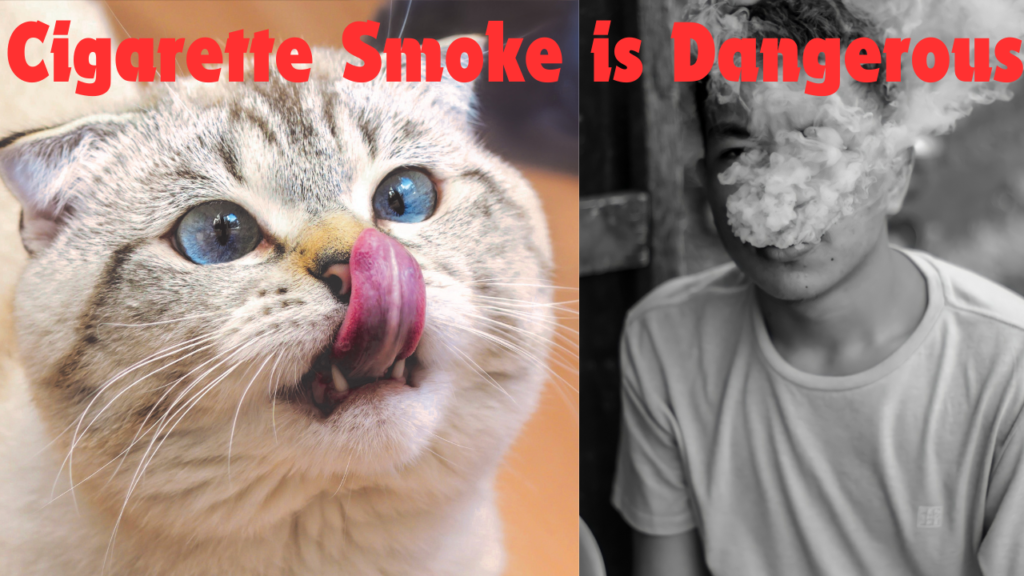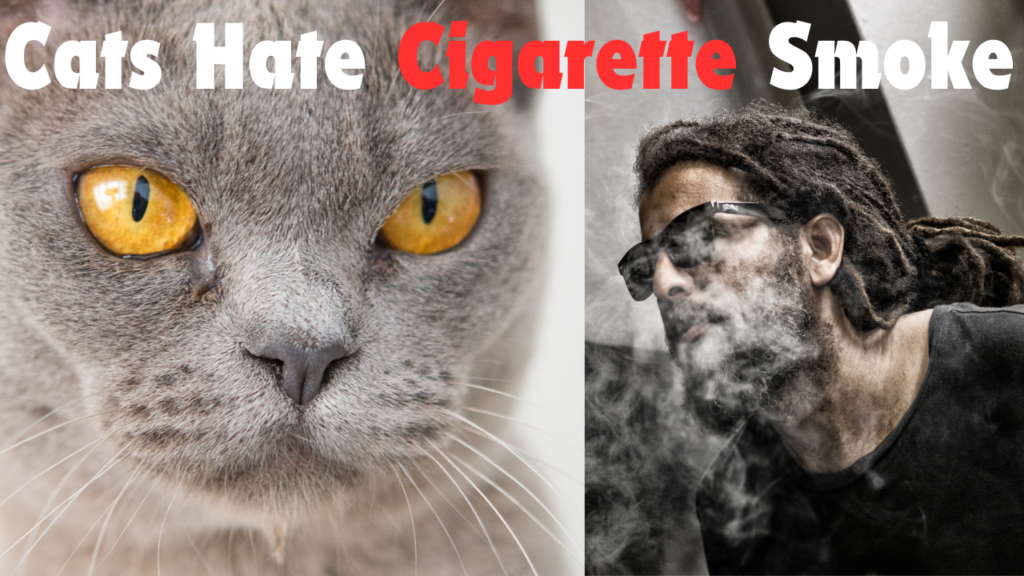Introduction
Cats, like humans, are sensitive creatures with highly developed senses. One of their most refined senses is their sense of smell. Because of this heightened sensitivity, they are often affected by environmental factors such as odors, which may include cigarette smoke. Understanding whether cats hate cigarette smoke involves exploring not just their reactions to the smell but also the effects it can have on their health and well-being.
In this article, we will discuss how cats perceive cigarette smoke, its potential dangers, and why it may be something that you want to avoid if you are a smoker and a cat owner.
Why Are Cats Sensitive to Smells?
Cats possess a highly acute sense of smell.In fact, their sense of smell is up to 14 times more powerful than a human’s. This heightened olfactory ability allows them to detect even the faintest odors in their environment. Cats rely on their sense of smell for several reasons, including identifying food, detecting potential dangers, and understanding the world around them.
Given that cats have such strong olfactory senses, it’s easy to see why they might be particularly affected by powerful or unpleasant smells, such as cigarette smoke. This leads many to wonder: do cats hate cigarette smoke?
How Cats React to Cigarette Smoke
There is no one-size-fits-all answer to how a cat will react to cigarette smoke. Some cats may show immediate signs of discomfort when exposed to the smell, while others might seem indifferent. However, it is essential to understand that just because a cat doesn’t show obvious signs of discomfort does not mean they are unaffected.
Common Reactions:
- Avoidance Behavior: Many cats will instinctively avoid areas where there is cigarette smoke. They may try to move to another room or display signs of agitation when the smell is present.
- Coughing or Sneezing: Cats exposed to smoke may exhibit respiratory symptoms such as sneezing, coughing, or wheezing. This is because their respiratory systems are sensitive to irritants like smoke.
- Eye Irritation: Cats often develop red, watery eyes due to exposure to cigarette smoke. This irritation can cause them to rub their eyes or blink excessively.
- Lethargy and Loss of Appetite: Cats that are frequently exposed to cigarette smoke may become more lethargic and could lose their appetite over time, as their sense of smell is compromised by the strong odor of smoke.
Why Cigarette Smoke is Dangerous to Cats
The dangers of cigarette smoke extend far beyond a simple dislike or discomfort. Secondhand smoke, which is the combination of smoke exhaled by the smoker and smoke from the burning cigarette, contains harmful chemicals such as nicotine, formaldehyde, and benzene. These toxins can have serious health implications for cats, particularly when they are exposed over long periods.
Health Risks:
- Respiratory Issues: Cats exposed to cigarette smoke are at risk for developing respiratory problems, including asthma and bronchitis. Over time, the inhalation of toxic chemicals can cause chronic lung diseases.
- Increased Cancer Risk: Prolonged exposure to cigarette smoke has been linked to lymphoma, a type of cancer that affects the immune system. Cats living in homes with smokers are more likely to develop lymphoma than those in non-smoking households.
- Tobacco Toxicity: Cats are meticulous groomers, and when cigarette smoke settles on their fur, they can ingest harmful toxins while grooming themselves. Nicotine is highly toxic to cats and can lead to symptoms such as vomiting, diarrhea, and increased heart rate.
- Eye and Skin Irritation: Beyond respiratory issues, cigarette smoke can also cause chronic irritation to a cat’s eyes and skin. Prolonged exposure may lead to infections, particularly in the eyes.

Thirdhand Smoke: A Hidden Threat
While secondhand smoke is harmful enough, thirdhand smoke—the residual toxins left on surfaces and fabrics—poses an additional risk. These toxins can cling to carpets, furniture, curtains, and even a cat’s fur. Because cats are in close contact with these surfaces, they are at risk of prolonged exposure to the chemicals in thirdhand smoke.
What is Thirdhand Smoke?
Thirdhand smoke is the residue from cigarette smoke that lingers long after smoking has ceased. Even if a cat owner doesn’t smoke in the same room as the cat, the chemicals can still settle in the home. Cats, being curious animals, explore their environment through sniffing and touching, leading them to come into contact with these toxic residues.
How to Protect Your Cat from Cigarette Smoke
If you’re a smoker and own a cat, there are several steps you can take to minimize the risks associated with cigarette smoke exposure:
- Smoke Outside: The most effective way to protect your cat from secondhand and thirdhand smoke is by smoking outside. This prevents the smoke from accumulating in your home and on your cat’s fur and belongings.
- Use Air Purifiers: Consider investing in a high-quality air purifier designed to filter out smoke and other pollutants. Although this won’t entirely eliminate the risk, it can reduce the concentration of harmful particles in the air.
- Maintain Good Ventilation: Ensure your home is well-ventilated by opening windows and using fans to disperse smoke. However, this should not be your sole method of reducing exposure as smoke can still linger on surfaces.
- Wash Your Hands and Change Clothes: After smoking, wash your hands and change your clothes to prevent transferring harmful chemicals to your cat. If possible, wear a designated smoking jacket that can be removed when re-entering your home.
- Regularly Clean Your Home: Frequent cleaning of surfaces, carpets, and upholstery can help reduce the buildup of thirdhand smoke. Vacuuming and washing your cat’s bedding regularly will also minimize their exposure to these toxic particles.
Conclusion
Cats and cigarette smoke are a dangerous combination. While some cats may not outwardly react to cigarette smoke, the health risks associated with exposure—ranging from respiratory problems to cancer—are significant. As responsible pet owners, it’s crucial to take steps to protect your cat from both secondhand and thirdhand smoke. By understanding the effects of cigarette smoke on cats and implementing preventive measures, you can create a healthier, safer environment for your feline companion.


